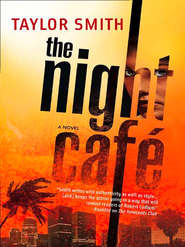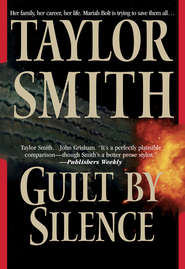По всем вопросам обращайтесь на: info@litportal.ru
(©) 2003-2024.
✖
Slim To None
Автор
Год написания книги
2018
Настройки чтения
Размер шрифта
Высота строк
Поля
CHAPTER 39
CHAPTER 40
CHAPTER 41
ACKNOWLEDGMENTS
My deepest thanks to Sheriff Lee Baca for free and open access to the resources of the Los Angeles Sheriff’s Department. Special thanks also to Homicide Detective Paul Delhauer and Deputy William Moulder for their patient and excellent guidance. Retired Homicide Detective Melinda Hearne was also great about answering my dumb questions. Deepest appreciation also to Linda McFadden (the plot queen), and Orange County Sheriff’s Deputy Gary Bale. And where would novelists be without fabulous investigative reporters whose work fuels the background research? I’m particularly indebted to Miles Corwin, P. W. Singer, Anne Garrels and William Langewiesche. Finally, I can’t fail to mention Kayla Williams, whose wonderful memoir Love My Rifle More Than You taught me so much about being a Western woman in Iraq and in the macho culture of the U.S. Army.
Finally, thanks to my agent, Philip Spitzer, Miranda Stecyk, my editor (aka “Tijuana Mama”) and all the great people at MIRA—a joy to work with, one and all. And last but never least, Richard, Kate and Anna, the home team—without you, none of it means a darn thing.
PART ONE
The Rent-an-Army War
“You cannot have trade without war, nor war without trade.”
—Jan Coen, Governor General
Dutch East Indies Company (c. 1619)
“Hiring outsiders to fight your battles is as old as war itself.”
—P. W. Singer: Corporate Warriors:
The Rise of the Privatized Military Industry (2003)
CHAPTER
1
Tuesday, August 26, 2003
Hamra Hotel: Baghdad, Iraq
The tinny jangle of the ancient black telephone next to the bed startled Hannah. Jumping to her feet from her crouched position by her duffel bag on the floor, she leapt over her desert camo jacket and bulletproof Kevlar vest and caught the phone on the second bleat.
“Hannah Nicks,” she said, wincing at the sharp pinch at her earlobe. It was caught between the receiver and one of the small gold earrings she’d forgotten to take off. Hooking the phone into the crook of her shoulder, she withdrew first the left, then the right stud and dropped them into the toiletry bag on the night table. The hotel room was furnished with battered blond Scandinavian furniture, an oddly modern contrast to the flood-lit palm trees and onion-domed mosque outside her window.
It was after 11:00 p.m. but the temperature inside and out was still hot enough to soften the unlit candles scattered on every available surface of her room. She’d left matches strategically placed next to each one in anticipation of the next inevitable power outage. For now, the electricity was functioning, for all the good it did. The air conditioner was on the fritz and the light situation wasn’t much better. Two of the lamps in her room were missing bulbs, while that in the third couldn’t be higher than forty watts. Rummaging through her duffel bag, hunting for her good luck charm, Hannah had finally resorted to her high-powered Maglite to see where she’d stashed the tiny velvet drawstring bag that held Gabe’s first baby tooth.
She’d already showered—with tepid and slightly brackish water, but she wasn’t complaining. The water supply, too, was intermittent, and she’d been lucky to get a chance to clean up at all after the long flight from the States. After the shower, she’d plaited her dark hair into a thick rope that reached almost to her shoulder blades, then dressed in desert camouflage pants, khaki T-shirt and sturdy tan hiking boots.
Losing the little gold earrings was the last vestige of her femininity set aside. In the rent-an-army business that employed her these days, dressing for success took on a whole new meaning. She might enjoy being a girl, as the old song went, but right now, she needed to be in professional mode.
“Ladwell here,” the voice on the phone said.
Sean Ladwell was a Brit, ex-Special Air Services, that nation’s equivalent of the Green Berets. Pushing forty—a decade older than Hannah and looking twice that, with his ruddy, wind-weathered skin—Ladwell was rumored to have seen private army action in Sudan, Angola, the Congo and Afghanistan since the end of his stint with the SAS. This was apparently Ladwell’s third sortie into Iraq on a short-term private security gig.
Currently, he was team leader of a small commando unit assembled by Brandywine International, a private military corporation headquartered in Alexandria, Virginia. The assignment this time out: to extract two family members of a London-based Iraqi intellectual. Washington was courting the exiled academic to help form the new, post-Saddam regime. Rescuing his relatives, who’d become trapped in the war-torn Sunni Triangle, might go a long way to cementing the man’s cooperation.
“We head out at midnight,” Ladwell said. “Meet up in the armory downstairs at twenty-three hundred hours to collect your ordnance and go over the plan once more.”
“Roger,” Hannah said. “I’m good to go.”
It had taken only twenty-one days for Baghdad and the thugocracy of Saddam Hussein to crumble before the American-led coalition, the latest in a long line of invaders to this region. Once called Mesopotamia, the world’s first great civilization, the country had been conquered repeatedly over the centuries—by Persians, Greeks, Arabs, Turks and the British. Saddam’s repressive rule was, in the end, nothing but an ugly flash in the historic pan, but building a lasting peace in this country would be a tricky, maybe impossible, venture. This was not an easy region to rule.
Brandywine had several contracts on the go in-country and maintained its own private airline, called Chardonair, to support its operations here and elsewhere. Brandywine’s employees were among an estimated twenty thousand private contractors who’d streamed into Iraq over the past few months, looking to reap a share of the riches in this latest corporate El Dorado. The company was running so many protective and assault teams in-country that it had taken over and fortified a large storeroom in the basement of the Hamra Hotel to warehouse a cache of rifles, handguns, fragmentation grenades, rocket launchers, flash-bangs and the other weaponry and supplies needed to keep its resupply lines open. Official U.S. military personnel might be short on bulletproof vests and armor to reinforce their vehicles, but the private contractors lacked for nothing.
“There’s a helipad a few blocks from here in the Green Zone,” Ladwell said. “That’s where we’ll rendezvous with the chopper.”
“Got it,” Hannah said. “I’m just going to take a run up to the roof to use the sat phone, but otherwise I’m ready.”
“A satellite call now? Is that necessary?”
“It’s just a quick one to my son back in the States,” Hannah replied, not that it was any of his business. It was superstition on her part, just like the good luck charm she always carried on these missions. If she died, she wanted one of the last voices she heard to be her eight-year-old son’s, and she wanted Gabriel to know she’d been thinking of him at the end. Making that potentially final call was part of her pre-op ritual. If you anticipated disaster, it wouldn’t happen—that’s what she told herself. In the past, it had been the unexpected nightmares, like losing custody of her child, that had blindsided her. Now, she never doubted the worst was possible, but if she visualized it, maybe she could dodge it.
“You can’t mention where you are,” Ladwell warned her.
Well, du-uh…
“I know that. This isn’t my first time to the prom, you know.”
“So they tell me.” The team leader’s voice betrayed the same skepticism he’d shown from the moment the team was first assembled five days earlier, despite the fact that at twenty-eight, Hannah was neither its youngest nor its least experienced member.
It wasn’t personal, she knew. Ladwell, like most of the ex-special forces grunts she worked with, couldn’t seem to shake the military mindset that women didn’t belong on the front lines of battle. This team and its mission had no official status, however, so the usual rules didn’t apply. The whole point of hiring private contractors was to allow governments to distance themselves from unpalatable tasks. The real battle, as far as the Washington political spin doctors were concerned, was the public relations battle. Passing messy jobs to off-the-radar civilian contractors made for handy deniability later if things turned sticky.
Despite Ladwell’s doubts, Hannah was no hothouse flower. She might have dark-eyed, exotic looks and a lithe, athletic figure on which even a T-shirt and cargo pants hung well enough to attract leering glances, but she’d spent six years as a patrol and undercover cop on the mean streets of Los Angeles, and then the last year and a half doing freelance security work. She didn’t need coddling and she was more than capable of taking care of herself when things got hairy.
She also knew her way around the Middle East, having spent nearly every summer of her youth in Beirut, Dubai and Amman with her paternal grandparents and other overseas Greek relatives who ran various family businesses in the region, some of which dated back to the turn of the last century.
“We are descendants of Ulysses,” Grandpa Demetrious liked to say on those evenings when Hannah would sit with him and her grandmother on their terrace overlooking Beirut’s Corniche, a warm Mediterranean breeze stirring the papery red bougainvillea and fragrant white jasmine that draped the balcony trellises. “Our family has always wandered the sea in search of its fortune. Sometimes the wind blows us good luck, sometimes not so good, but we sail on nevertheless.”
Hannah’s personal wind of fortune had blown her back to the Middle East once more when Brandywine management had overruled Ladwell’s objections to having a woman on the team. Hannah had done work for them before, she’d handled herself well, and with so much security business opening up these days, resources were stretched thin. And then, there was the clincher: she was the only Arabic speaker in their freelancer database who was available when the call came. Since the contract specs called for at least one member who spoke the language, either she was in or they didn’t get the job. End of story.
“I’ll be downstairs in twenty minutes,” she told Ladwell.
“Don’t be late.”
Hannah scowled. Yeah, right. Like she’d be sitting back, eating bonbons and watching her nail polish dry while the rest of the team got its kit together and headed out.
Dropping the receiver back in the cradle, she grabbed her GlobalSat phone and headed out into the hallway and up the stairs to the hotel’s rooftop to make her call to Gabriel.
CHAPTER
2
Boston, Massachusetts











